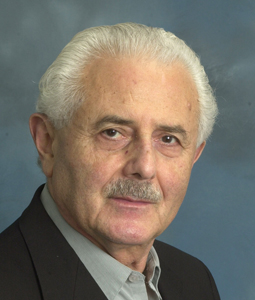Warm the cold February chill with a tribute to Cole Porter, one of the major songwriters for the Broadway stage. The concert takes place at the Koger Center for the Arts on Tuesday, February 24 at 7:30 p.m. Four soloists and chorus celebrate some of Porter’s greatest hits including I Get a Kick Out of You, You’re the Top, All Through the Night, I Love Paris, Begin the Beguine, So in Love, and Night and Day.
Led by acclaimed director Donald Portnoy, University of South Carolina’s premier orchestra ensemble, the USC Symphony Orchestra, has received accolades for its fine and mature performances. Tickets are on sale now at capitoltickets.com.
Joining the USC Symphony Orchestra for the concert are USC music faculty members, Tina Milhorn Stallard (soprano), Janet Hopkins (mezzo-soprano), Walter Cuttino (tenor), Jacob Will (baritone), and the Dreher High School Chorus.
Unlike many successful Broadway composers, Porter wrote the lyrics as well as the music for his songs, which are full of double entendres, clever internal rhymes, and sophisticated uses of melody, rhythm and harmony. Some of the cleverest, funniest and most romantic songs ever written came from the pen of Cole Porter.
Born in Peru, Indiana in 1891, Cole Porter was born into a wealthy family, studying violin and piano as a child at the insistence of his mother. Although violin was a struggle for the young Cole, the piano allowed him to produce the harmonies that captivated him and that would set him on his way to a successful musical career.
Although he was not a good student, he attended Worcester Academy in preparation for an Ivy League college, and it was there that he began composing witty songs at the age of eight. He soon learned he could win over the boys his age with the risqué lyrics that would become his trademark.
Porter went on to Yale University, where he almost flunked out – he was too busy with extracurricular musical activities. It was here that he began to get his songs published. Most students at Yale knew him for the fight songs he would write, many of which continue to be Yale classics.
Surprisingly, the likeable and industrious Porter was accepted to Harvard Law School, but was subsequently transferred into the Graduate School of Arts and Sciences. During his first year at Harvard in 1915, he had two of his songs performed in Broadway shows, and his own “patriotic comic opera,” See America First, made it to the Broadway stage the following year.
Porter was able to enjoy a charmed social life flitting between Paris, London and Venice. After some early flops, he eventually won over critics and audiences. He produced one of his greatest hits with Gay Divorce, Fred Astaire’s last stage show, which was later made into a blockbuster Hollywood film starring Astaire and Ginger Rodgers. Many hits followed, and in 1948 he wrote his masterpiece, Kiss Me, Kate, winning the coveted Tony Award for Best Score.
Tickets are on sale now by calling Capitol Tickets at 803-251-2222, online at capitoltickets.com, or in person at the Koger Box Office, corner of Greene and Park Streets. $30 general public; $25 senior citizens, USC faculty and staff; $8 students.



